Programme
Official language of the conference is English. It is assumed that delegates can understand and speak the English language. The use of translators is not recommended.
For the 19th time PhD students in health and nursing science meet at the European Doctoral Conference in Nursing Science. The conference is an opportunity for PhD students in Europe to present their findings and exchange with others.
09.09.2022 until 10.09.2022 – Bern University of Applied Sciences, Schwarztorstrasse 48, 3007 Bern
We look forward to welcoming you to two days of international exchange and inspirational keynote speeches, workshops and presentations at Bern University of Applied Sciences, Bern, Switzerland.
The 19th European Doctoral Conference in Nursing Science is a meeting point for PhD students in health and nursing science from all over the world. The conference takes place in Bern, Switzerland, and is organized by PhD students in nursing science from the Bern University of Applied Sciences (Switzerland), Maastricht University (the Netherlands) and the Medical University of Graz (Austria).
Professors and other health / nursing- or faculty staff are welcome to join the audience. About 100 people from a variety of European countries attend the conference each year. On this website you can find all information regarding the 19th conference in Bern.

Official language of the conference is English. It is assumed that delegates can understand and speak the English language. The use of translators is not recommended.
The program and abstract of the EDCNS 2022:
All PhD-students in health and nursing science were invited to submit an abstract for an oral or a poster presentation.
Each presentation will be allocated a maximum of 10 minutes followed by a discussion.
Posters will be exhibited for the duration of the conference and there will be a poster session to present it.
When effectuating the payment via bank transfer, please specify the name of the person participating in the EDCNS so that the payment can be assigned correctly. Please remember that only after paying you are registered. Payment for early booking must take place before June 15th, 2022. Please note that by standard booking the payment must take place before August 31st, 2022. If cancellations are received before August 31st, 2022, 50% of the fee will be refunded. Cancellations received after this date cannot be refunded.
If participants fail to take part in the event for any reason, including causes of Force Majeure, the Bern University of Applied Sciences BFH shall not be liable for travel / cancellation fees. Also, the BFH shall not be liable for travel/cancellation fees if the event is cancelled due to Force Majeure or causes beyond the Institutes reasonable control and occurring without its fault or negligence. In both cases the participants themselves are liable for travel/cancellation fees.

Professor Aiken conducts research on the use of performance measures to demonstrate relationships between health care workforce factors and patient outcomes in over 30 countries. She is the author of more than 300 scientific papers. She is an elected member of the US National Academy of Medicine, the American Academy of Arts and Sciences, a former President of the American Academy of Nursing, and an Honorary Fellow of the Royal College of Nursing. She is the recipient of the Christiane Reimann Prize from the International Council of Nurses and was an Inaugural Member of the International Nurse Researcher Hall of Fame of Sigma Theta Tau International.
Twenty years have passed since a ground-breaking report from the US Institute of Medicine followed by comparable evidence from the World Health Organization’s World Alliance for Patient Safety concluding that medical errors are among the leading causes of death around the world. Progress improving patient safety has been slower than anticipated. The reasons why include insufficient investments in nursing including the transformation of nurse work environments. Research on the impact of nursing on patient safety will be discussed including implications for practice and policy.
A rigorous international evidence base suggests that safe nurse staffing in healthcare settings is associated with better patient outcomes, successful recruitment and retention of health professionals, and higher productivity in healthcare. While most research on nurse staffing has been cross-sectional, increasingly panel studies offer confirmation of the causal links between evidence-based staffing and superior outcomes. The evidence based is now adequate to move on to intervention research with rigorous evaluation studies to determine whether policies to improve nurse staffing causes better healthcare outcomes. The workshop discusses the design and implementation of prospective integrated nurse staffing policy research initiatives in different countries to advance health services research, improve patient outcomes, and enhance recruitment and retention of nurses in clinical care.
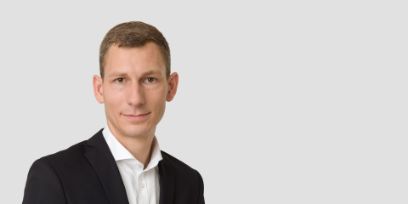
Mark is a health economist with experience in applied health economic research and the pharmaceutical industry. Mark is a specialist in health technology assessment and the economic evaluation of policy interventions. His research focuses on the effects of institutional reforms on medical decision making and methods for network meta-analysis of time-to-event outcomes.
The integration of health economics into nursing sciences bears great potential for both disciplines and for the entire health care system. Health economics aims at maximizing population health using scarce resources efficiently. Reallocations of scarce resources in health care can relate to the prioritization of medical interventions or to institutional reforms in service provision or the entire health care system.
Nursing has become increasingly important in medical decision making and in the provision of medical care. To be a major player in shaping the current changes in the health care system, however, nursing scientists must generate robust evidence on the marginal costs and health effects of nursing interventions and new professional roles. At the same time, institutional reforms need to take both the desired and undesired incentives for nurses, physicians and patients into consideration. In this presentation, I discuss empirical methods to inform the efficient allocation of scarce resources in nursing care, show the pitfalls of institutional reforms that alter incentives for individuals and introduce approaches for the empirical evaluation of institutional reforms in a real-world setting.
The efficient allocation of scarce resource in the health care system requires robust evidence about the costs and health effects of alternative medical interventions. In this workshop, we introduce the concept of cost-effectiveness analysis, and explain how it is used for political and medical decision making. We identify essential aspects nursing scientists need to consider in their clinical research projects to generate the evidence base needed to inform medical and political decision making. A strong focus will be put on the collection, analysis and interpretation of cost data in the clinical context.
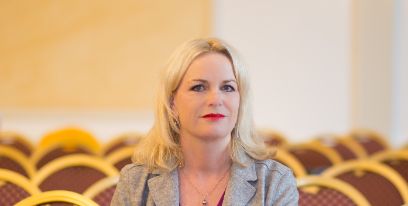
Prof. Dr. Sabine Hahn (PhD, CNS, RN) is leading the Division of Nurs-ing and the Unit of Applied Research in Nursing at Bern University of Ap-plied Sciences. As psychiatric nurse, she worked over 15 years in direct care. She has been conducting research in the areas of violence, coercion, and de-escalation in healthcare, to counter shortage of health workforce and, in quality development in nursing. She is a founding member of the research group Health Care Communication Design (HCCD) at Bern University of Applied Sciences and Scholar of the Swiss Center for Design and Health (SCDH).
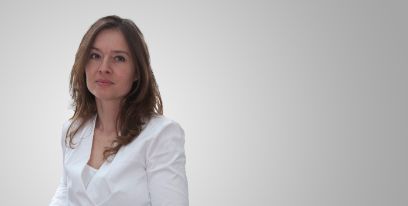
Prof. Dr. Minou Afzali is Head of Research at the Swiss Center for De-sign and Health (SCDH) and coordinator of the interdisciplinary research group Health Care Communication Design (HCCD) of Bern University of Applied Sciences. Her research focusses on health care design, social design and evidence-based design. She holds a degree in product de-sign and completed her PhD at the Institute for Social Anthropology at the University of Bern. Minou Afzali is board member of the Swiss De-sign Network.
Today’s healthcare system is permeated with design questions: To what extent does the spatial environment contribute to patient aggression? How can people with dementia better orient themselves in the hospital? How can communication between nurses and foreign-language patients be improved? Or: How must an intensive care unit be designed to sup-port staff’s work processes? In order to be able to answer these com-plex questions, knowledge and competences from different fields are needed.
The lecture will give an overview of evidence-based design in health contexts and show how interprofessional collaboration between re-searchers from different fields, such as design, architecture and nursing can work. It will address both the potential and challenges of interdisci-plinary research using concrete project examples. At the newly founded Swiss Center for Design and Health (SCDH), knowledge and research competences of different disciplines are used to answer complex ques-tions in healthcare and to come up with innovative solutions.
In this workshop, participants will discuss their individual experiences with design problems within health care contexts and with design re-search. Together we will deepen our understanding of what interprofes-sional research in design and health means and which methods are suit-able to include different stakeholders in research processes. Finally, the participants will jointly develop project ideas that require interprofes-sional collaboration and can contribute to design better health care.
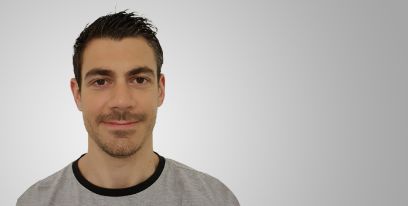
Adrien Cerrito’s background is physiotherapy and his master’s and PhD theses were in the fields of biomechanics, sports and injury prevention. These have remained his areas of research in which he currently focuses on the mechanisms of how running-related injuries develop, the preven-tion of injuries in wrestling athletes as well as on hospital-acquired de-conditioning.
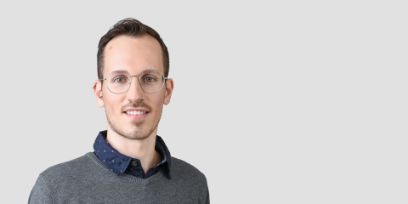
Manuel Weber is a PhD student having a background in sport and movement science. His PhD projects aim to examine target group-specific lifestyle interventions using technology, whereas the focus lies on physical activity, nutrition, and respiration/relaxation. Such a digital intervention is currently being developed and will be subsequently assessed in lung cancer patients following rehabilitation.
It is well known that the transfer of scientific findings into regular clinical practice takes a long time to occur. To address this problem, the Bern University of Applied Sciences together with the University Hospital of Bern, has launched a partnership that has resulted in a research unit – the Academic-Practice Partnership Insel Group. It is composed of an interprofessional and multidisciplinary team and has a strong focus on translational research.
In this workshop, it is intended to illustrate the interprofessional and multidisciplinary approach of the research unit as well as how it is inte-grated into the academic and clinical settings. Methods of bridging these two entities will then be conferred via the presentation of past and current research projects, in which various health care professionals either collaborate with each other, with researchers or professionals from other fields, or both. The workshop will be concluded with a dis-cussion on the challenges and opportunities in translational science.

Welcome to Bern! The capital of Switzerland, the birthplace of the world famous chocolate called Toblerone and place of residence of the well-known physicist Einstein. Bern is a very charismatic city and its historic center even belongs to the UNESCO world cultural heritage.
The Welcome Reception will take place on Thursday, the 8th of September 2022 at 6 pm at the Best Western Plus Hotel Bern. You will have the opportunity to register for the EDCNS conference and network with other participants from around the world. In addition, small snacks and drinks will be served.
Including Welcome Reception and Conference Dinner
The Conference Dinner will be held on Friday, the 9th of September 2022 at 7 pm at a popular location. The Kursaal Bern offers a wide range of attractions of the highest quality, superior service and a central but scenic city location. Fine views extend over the historic old town (a UNESCO World Heritage site) to the distant snow-capped Alps. You will be served a dinner that is a treat for all senses in this exclusive atmosphere where the spirit of Bern as a World Heritage Site is palpable.
When participating in the EDCNS Conference you might need an accommodation during your stay. To make your stay as comfortable as possible, we have arranged for conference visitors to enjoy special discounts on a number of rooms at selected hotels.
If you reserve your room via the above link, you will receive a complimentary public transit ticket for Bern (Zone 100/101) for during your stay. It will not be necessary to purchase a ticket to reach the conference. On the day of arrival upon reaching Bern, your hotel reservation is equivalent to the public transit ticket from Bern main station to the hotel, or from the Bern airport to the hotel (However, please note that train tickets from other airports or train stations are not included and must be bought separately upon arrival in Switzerland, or online beforehand).
We hope that you’ll find a suitable place to stay in Bern and wish you an exciting and successful EDCNS Conference as well as many unforgettable memories discovering our beautiful city!
The conference is supported by:
We are just a five-minute tram or bus ride from Bern central station or it is about a 10-minute walk. Here you will find the public transportation time table: